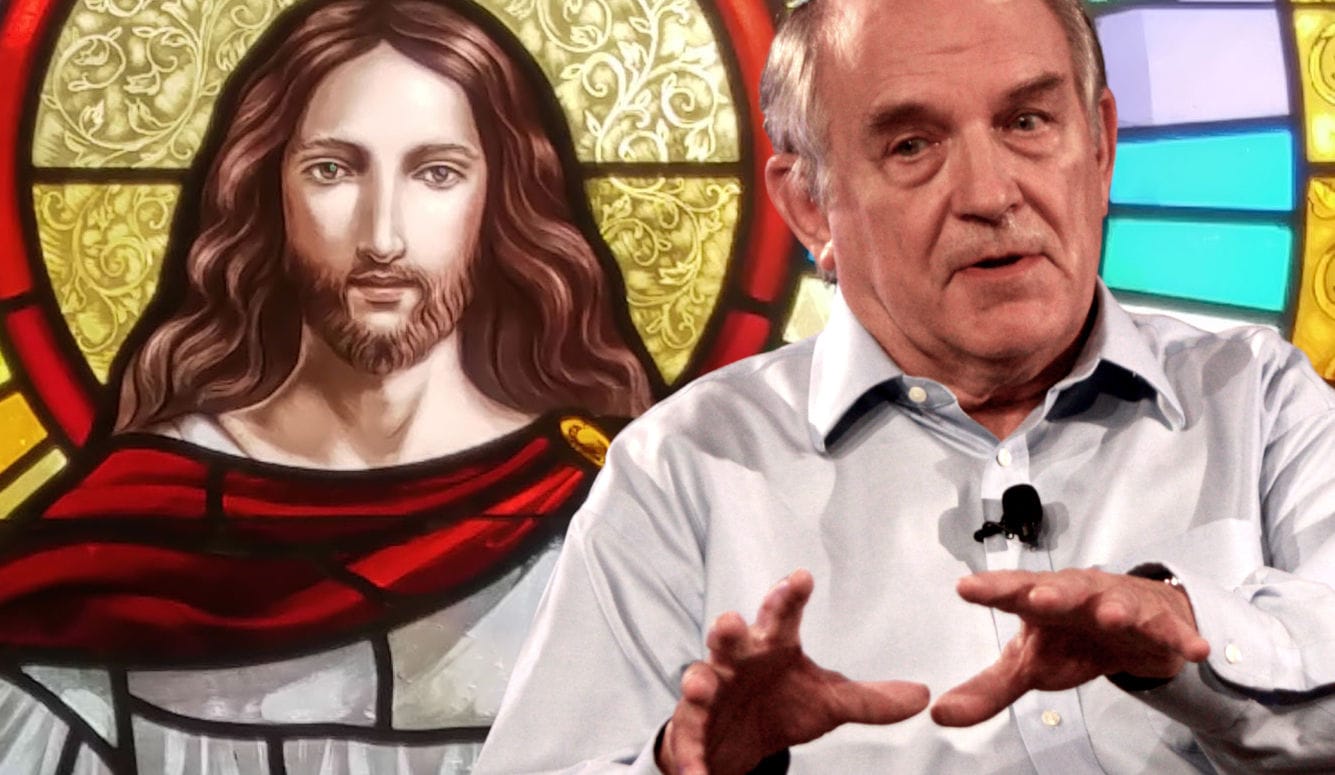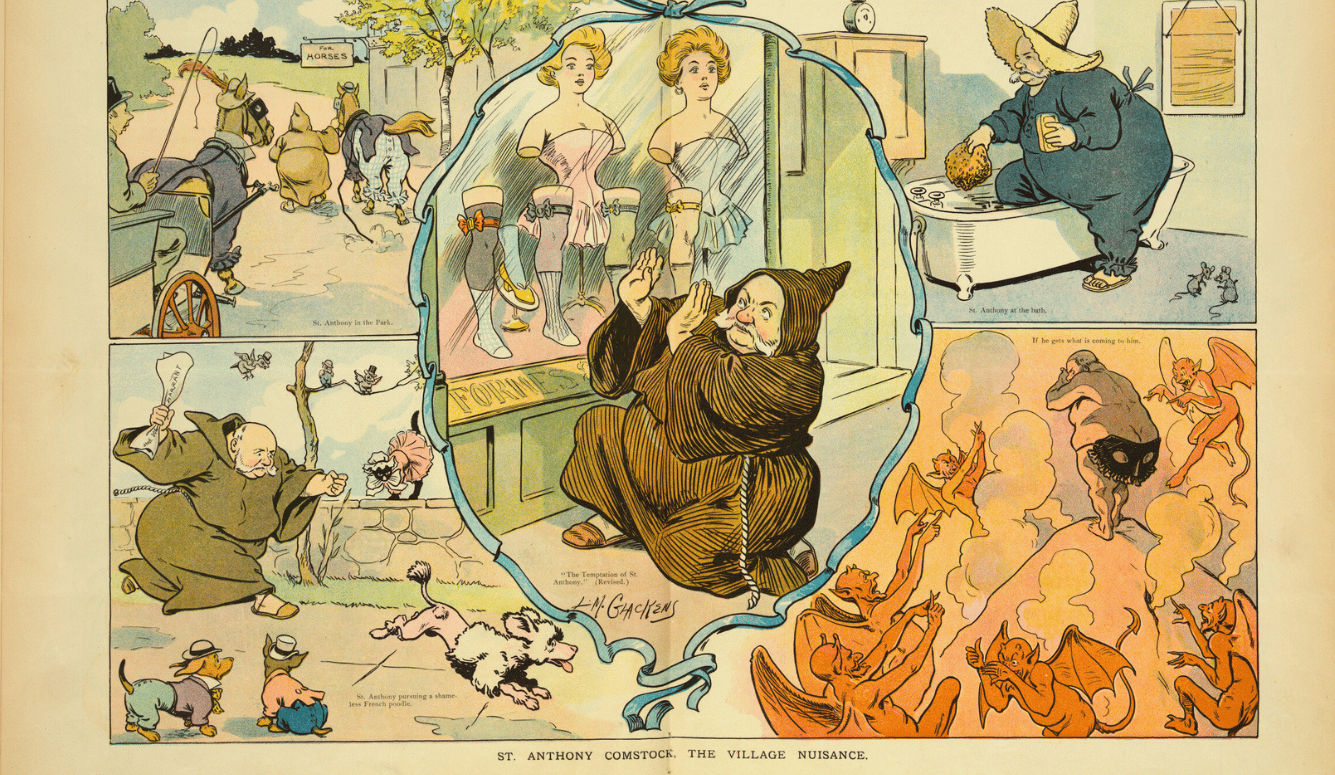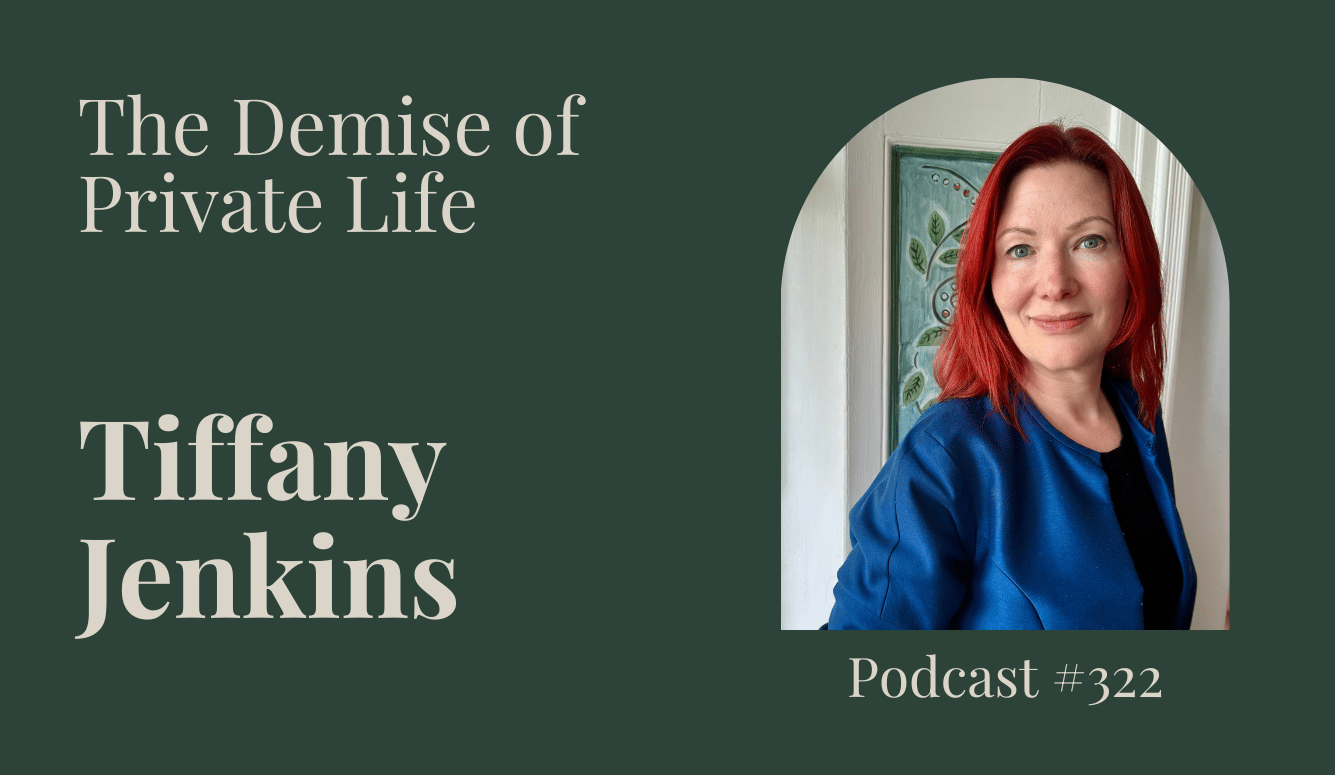Podcast
Podcast #265: Did Oliver Cromwell Really Kill Christmas?
Quillette podcast host Jonathan Kay speaks with David Crowther about seventeenth-century puritan attitudes toward yuletide debauchery—and about his acclaimed History of England podcast.

[00:00:00] Jonathan Kay: Welcome to the Quillette podcast. I’m your host, Jonathan Kay, a senior editor at Quillette. Quillette is where free thought lives. We are an independent, grassroots platform for heterodox ideas and fearless commentary. If you’d like to support the podcast, you can do so by going to Quillette.com and becoming a paid subscriber.
[00:00:21] This subscription will also give you access to all our articles and early access to Quillette social events.
And today I am going to break my usual rule against interviewing other podcasters—because, well, it’s Christmas—and you get to break rules on Christmas. And also because this is pretty much my favourite podcaster in the whole wide world, and so getting the chance to talk to him is kind of my yuletide present to myself.
So if you’re a regular listener, you’re probably a fan of history—because I cover a lot of it on the Quillette podcast. And for many years, the standard by which others are judged in the historical podcasting genre has been Mike Duncan’s epic History of Rome podcast, and his equally excellent Revolutions podcast.
But as Yoda once said, There Is Another. And he is my guest today: David Crowther, creator of The History of England podcast—which is about, well, what it says on the tin, basically.

For more than a decade, David has systematically been taking his listeners through the history of England—with detailed forays into the history of Scotland, Ireland, and yes, even Wales, I should say—from the age of the Venerable Bede and the Anglo Saxons up into the mid-seventeenth century, which is where the narrative now sits after 421 episodes comprising 2.5 million words. And the guy is not going to stop, I learned in the interview you’re about to hear, till he gets to the year 1913, which should take another 400 episodes or so.
If you’re a fan of history, David Crowther’s podcast is a must-listen, as are his various other so-called shedcasts (the idea here being that he broadcasts from a shed behind his house), which cover related subjects like the history of Scotland, Life and Landscape in Anglo Saxon England, and biographical profiles of fascinating historical figures such as Eleanor of Aquitaine, Margaret Beaufort, and Margaret Cavendish.
But my pretext—I mean rationale—for getting David on the podcast this week is that it’s Christmas, which, as you well know, culture warriors are always attacking. AKA the endless War on Christmas. But the war on Christmas we’re going to be talking about isn’t the one you hear about on FOX News or whatnot. Rather, it’s the one that took place in England in the middle part on the seventeenth century when Christian Puritans—I mean, literal Christian puritans—got really exercised about the fact that there’s nothing in the Bible about getting drunk at your annual Xmas office party.
And one guy whose name often gets the boo-and-hiss treatment in this context is Oliver Cromwell, the Parliamentarian military commander who became England’s Lord Protector following the English Civil War. Being very much associated with the puritan cause, the Parliamentary forces who fought against King Charles I could be real killjoys—and no, they didn’t think much of yuletide debauchery. But was Cromwell really the leading Grinch in this respect? That’s the question I put to History of England podcaster David Crowther.
[00:02:58] This is a holiday Christmas podcast, so let’s get to some of the historical material about Christmas. I just want to set the baseline here. Let’s go back to, say, around 1600, the beginning of the Stuart period. You’re just this average, church-going peasant. This is after Henry VIII got England out of the Catholic Church, but before some of the religious tumult that accompanied the English Civil War.
[00:03:25] How important was Christmas during this period? Because there were a lot of holy days. The whole calendar was dotted with holy days. Did Christmas stand out?
[00:03:35] David Crowther: I think it certainly did. I could probably take you back a little further, say to the late fifteenth century, because quite a lot of things change in the fifteenth century, actually the high Middle Ages.
[00:03:45] And that’s really when Christmas begins to catch up. So before that, of course, the biggest festival of all is Easter. That’s a really big one. And the Christmas in the early medieval days is a small thing really… it is around but it’s quite small and unimportant, but it really goes in the fifteenth century.
[00:04:04] So by the time we get to Henry VIII and the Reformation, it’s really big because it’s all about inversion. [Peasants] spend their whole lives being in hock to the bosses, the lords of the manor, and all the rest of it. But at Christmas time, there is this Lord of Misrule thing, and it’s twelve days…
[00:04:26] It’s not just one day, it’s not just Christmas Day, it’s the whole thing. They let [you be] lords of misrule who get to lord it over the lords, [who] have to be part of it, and they have to feast everybody, and it’s real payback time for the whole year. They have a lot of fun.
[00:04:45] There’s a thing about the bean feast where if you get a bean in your cake, you are the bishop of misrule… And then the following Monday, everyone goes back to work and they start ploughing. You have Plough Monday, you bless the plough and it’s back into the field.
[00:05:06] So yeah. It’s big. It’s always under threat, though. I think it’s Elizabethan [pamphleteer] Philip Stubbs who complains that there is more mischief done in Christmas than all the rest of the year put together. It’s always under threat. Ben Jonson writes a play, I think, in [1616], which is a defence of Christmas, because he’s aware it’s under threat.
[00:05:30] Jonathan Kay: It’s hard to talk about historical podcasts without bringing in Mike Duncan of History of Rome fame. One of the things he talked about is that a lot of the pagan holidays had this same inversion, where slaves would become the masters and masters would become the slaves for a day or two.
[00:05:46] I mention this because you hear people make offhand comments about, how, oh, Christmas shouldn’t be a big deal: It’s just a Christian adaptation of pagan solstice festivals and stuff like that. But you do see common themes. The historical line between paganism and Christianity, not just in England, but everywhere else, is sort of a blurry line, no?
[00:06:06] David Crowther: Well, the interesting things about that is that it’s a safety valve, isn’t it? Very strict hierarchy existed. So it’s the same pressure that you’ve got. You have to have a safety valve. The other thing is, that is the very reason why Puritans don’t like Christmas.
[00:06:25] Because, of course, these aren’t in the Bible. The Bible doesn’t talk about these festivals. And so it smacks of paganism. And that’s one of the reasons why there’s all the pressure to get rid of it,
[00:06:37] Jonathan Kay: I’m also thinking about Canadian Indigenous history because one of the things I think Samuel de Champlain noted, is that in some Indigenous [Wendat] societies in Canada, they also had a day where the polite nature of Indigenous society broke down, and people would run around yelling about their dreams and getting stuff off their chest.
[00:06:57] The safety valve thing does seem to be a universal feature, right? Where you adapt spiritual or religious traditions to the psychological need we all have.
[00:07:07] David Crowther: That’s really interesting. I did not know that actually. That’s fascinating.
[00:07:11] Jonathan Kay: Can I talk about language for a bit?

[00:07:13] You mentioned the word hooley. So one of the things I love about your podcast is you say these words and expressions as if everybody around the world knows what they mean, which I actually find very endearing. So, first of all, what is a hooley? I mean, I get the sense it’s a sort of party. And what is, a “lardy cake”?
[00:07:33] David Crowther: Oh, Jonathan, right. Give me your postal address. I will bake you some lardy cake.
Jonathan Kay: It sounds disgusting.
[00:07:39] David Crowther: It’s got a branding issue, I’ll give you that. But it’s fantastic. It’s a lovely sweet bun, with spices, with raisins, with a little sugar icing on the top, not too much, and of course lard.
[00:07:55] And what’s not to love about lard?
[00:07:57] Jonathan Kay: English cuisine in general has this branding problem, where one of my English friends will, will say, “Oh, you got to try this,” and I’ll say, “Oh, what’s it called?” And it’s like, “Oh, it’s called pig in a hole,” or, “It’s toad in a sprocket.”
David Crowther: If you haven’t eaten toad, you haven’t lived.
[00:08:11] Jonathan Kay: From your podcast, I learned that, I think in the time of Henry VIII, eating eels or lampreys was something of a delicacy.
[00:08:19] David Crowther: Absolutely. The diet was much, much more varied, of course, back then, especially in terms of meat, And so eels and all kinds of seafood and whelks and cockles and all the rest of it were all very popular.
[00:08:31] More, you had to get by with what you could get.
[00:08:34] Jonathan Kay: So, let’s get back to the Christmas thing, because, yes, we’re talking about Christmas, but there’s also this larger stereotype. Which emerges from ... I guess, we’re talking about the seventeenth century, the English Civil War, and also the political, religious propaganda on both sides, because this is also the rise of newssheets.
[00:08:53] And one of the stereotypes is that the royalists, people who supported Charles I and his claim to absolutist, monarchist rule, were these romantic figures out of the Three Musketeers with beautiful, flowing, well-conditioned hair. Prince Rupert, of course, is the paradigmatic example, with a whinnying horse and a glint in their eye.
[00:09:14] And then on the parliamentary side, there are these very grim, religious roundheads, really nerdy haircuts, and they’re always lecturing everybody about what not to do and shouldn’t you be in church and all that stuff. Is there any reality to that underlying stereotype?
[00:09:29] David Crowther: When I started on this period, I had a little quiz with all my listeners.

[00:09:34] I did a website quiz where they looked at pictures and they decided whether they were roundhead or cavalier. It was designed to befuddle. And of course, they got it wrong because dressing was a social convention. It wasn’t anything really to do with the Civil War, and it wasn’t one side or the other in that sense.
[00:09:53] So there are plenty of flamboyant parliamentarians. And indeed, there’s a delightful picture of Oliver Cromwell, who is wearing the most outrageous pair of pantaloon-type things, which are are a fashion outrage. Very flamboyant. And there are people on the parliamentarian side, like Henry Marten, who was a really radical politician.
[00:10:14] Jonathan Kay: He was the guy who wanted to get rid of the king altogether.
[00:10:17] David Crowther: Yeah, he was the first guy to say it, and in fact he got put in jail. And he had a very wild private life. The [2nd] Earl of Warwick, Robert Rich, who was extremely well-heeled. He was known as a joker. Oliver Cromwell throws cushions at people when he’s having a good time.
[00:10:31] So, it’s not really like that. And of course, “cavalier” was an insult. It was one of those political insults which, like “Tory,” the recipient of it takes it on and wears it about with pride. They’re seen as lawless, violent, unruly.
Jonathan Kay: Does “Puritan” fall into that category?
David Crowther: The reason why we’ve got this stereotype is that although not all parliamentarians are Puritans, almost all Puritans fight on the side of Parliament, because that’s the argument about religion. And the Puritans could be very preachy. They disliked ale houses because they’re a source of disorder, and they didn’t like the feasts.
[00:11:17] Worst of all, of course, when Christmas got cancelled—not by Cromwell—when Christmas gets cancelled, instead of these lovely festival days, they say, “Well, they’ve got to have time off. So instead of that, we’ll have fast days…”
[00:11:30] Jonathan Kay: Oh my.
David Crowther: It’s a tough sell, isn’t it?
Jonathan Kay: Especially if you’re talking to your kids and you say, “Hey kids, it’s still a special day! It’s Yom Kippur every Sunday…”
But Cromwell is a contradiction. You have this interesting thing where he almost ended up in Massachusetts. He almost joined this… I don’t want to get into it because it’s complicated, but there was a Dutch subplot where a lot of Protestant refugees were organising to go off to create a model Puritanical society in New England, and Cromwell almost joined that, and history would have been very different had he done so… But what’s paradoxical about him, my understanding is that he was a religious pluralist.
[00:12:14] In fact, the Puritans were sceptical of it. He would invite anybody into his regiment as long as they were a good soldier, they fought for the cause—the Independents, I think they were called.
[00:12:24] David Crowther: Cromwell is very interesting because there are so many Cromwells, some of which are really attractive and some of which are really very unattractive.
[00:12:32] One of the really good things about him, very attractive things about him is he’s very down to earth, he gets on with a lot of people, and he is a religious pluralist to a degree, of course, as far as most Protestants are concerned. The Pope, specifically, is the Antichrist, I mean really the Antichrist, not just a not-very-nice guy, trying to pervert people and fool people.
[00:12:55] But Cromwell is actually, even with Catholics, he appears to have been reasonably relaxed. So he’s part of a group of people who believe that each congregation will find their own way to God and find their expression in that way, and that you shouldn’t interfere with that process, and that a national church is therefore a [form of] repression.
[00:13:18] Clearly that’s aimed at Protestants rather than a much wider group. But in time, he extends it, of course, to the Jews. So they become, yes, religious pluralists, and many of the Puritans are Presbyterians who still believe in a national church. So the Independents and the Presbyterians within the parliamentary faction begin to argue and fight with each other.
[00:13:39] Jonathan Kay: Much to Charles I’s delight! But Cromwell was also something of a poet. One of the great things about your podcast is the long-form nature of it allows you these incredible digressions. There was one point where you quoted at some length from a letter of condolence that he wrote to someone else on the parliamentary side, I think who had lost a son fighting in a battle.

[00:14:02] And Cromwell was consoling him that his son would go to the kingdom of heaven and Cromwell was a beautiful writer.
[00:14:08] David Crowther: He’s very quotable. And this is one of the problems in evaluating Cromwell, actually. I think John Morrill, who is the guru of Cromwell at the moment, says that the big question about Cromwell is whether we take him at his word.
[00:14:20] Because yes, that letter is very famous. He talks about his son in his glory. What he’s talking about, of course, is the glory of Christ, but they’re wonderful words. John Morrow says, Do we take him at his words? Because he has an ability to deceive himself as much as deceive other people. Therefore he comes across as very genuine.
[00:14:37] But many people describe him as a hypocrite. And that’s one of the big problems of interpreting Cromwell.
[00:14:44] Jonathan Kay: Is there any evidence that Cromwell, part of his political program was, Well, I can’t wait for the protectorate. We haven’t invented the protectorate yet, but I can’t wait for it because then I could stop people from doing Morris dancing, whatever that is, and I can shut down Christmas?
[00:14:59] Was that part of his program? Is there any historical reality to that stereotype?
[00:15:03] David Crowther: I think very much not. To be fair, he was about moral reformation. So we have the rule of major generals, where he does believe that society needs to become worthy of Christ, very much in the same way as the Covenanters in Scotland, actually.
[00:15:20] But I don’t think he’s ever planning for it. That is his personal view and he would try to live that life and bring people around to it. Christmas is cancelled, not by Cromwell. It’s cancelled well before he becomes powerful in 1644 and then officially in 1647. It is very much a trend and a desire of the Puritans to get rid of these, what they see as pagan festivals.
[00:15:46] So it isn’t Cromwell. Nevertheless,Cromwell… he never talks about Christmas actually, I don’t have any record of it, but he’s likely to have agreed with [the scepticism toward Christmas], and he does support the policies that the Rump and Commonwealth had instituted. I think Cromwell is not a planner. He is not a strategic planner, and that will be his weakness as a head of state.
[00:16:09] He doesn’t have a plan. He reacts to events and he’s a military-type person so that he’s used to decisive actions where everything is obvious and clear and then he can get involved. And you get a series of crises where he can’t get his way. The solution won’t emerge. People won’t behave in the way that he wants them to behave—in a sober, contemplative manner.
[00:16:34] And so he pushes through because he’s a man of action and decisiveness.
[00:16:44] Jonathan Kay: There’s a larger conversation that we don’t have time for about what happens when successful military generals become politicians…
[00:16:54] David Crowther: Can I give you a quote from the Iron Duke, the Duke of Wellington? So the Iron Duke, as you’ll know, a military man for many years, defeats Napoleon and all that, and he becomes Prime Minister. So he assembles his first cabinet and they’re all sitting around. And afterwards, he complains to one of his friends: I gave them their orders and damn me, they wanted to discuss them!
Jonathan Kay: Thanks for listening to this preview of our latest podcast. We hope you’ve enjoyed the discussion so far, but we’re just getting started. To hear the full podcast episode and gain access to our entire podcast library, we invite you to become a Quillette subscriber. We offer three subscription tiers to suit your needs.
First, podcast only. For just five [US] dollars per month, you’ll get access to our full podcast library, including the rest of this episode. This is our most affordable option for podcast enthusiasts. Second, full access. At 10 [US] dollars per month, you’ll get everything in the podcast-only tier, plus unlimited access to all articles on Quillette.
Third, there’s VIP. For 25 [US] dollars per month, enjoy all the benefits of full access, along with free tickets to our Quillette social events. If you’re primarily interested in our podcasts, the podcast-only tier at five dollars per month is perfect for you. Either way, if you’re ready to join us, it’s quick and easy. Simply visit our website at Quillette.com and then click Subscribe. From there, you can choose the subscription tier that best fits your interests. We look forward to having you as part of our community.






